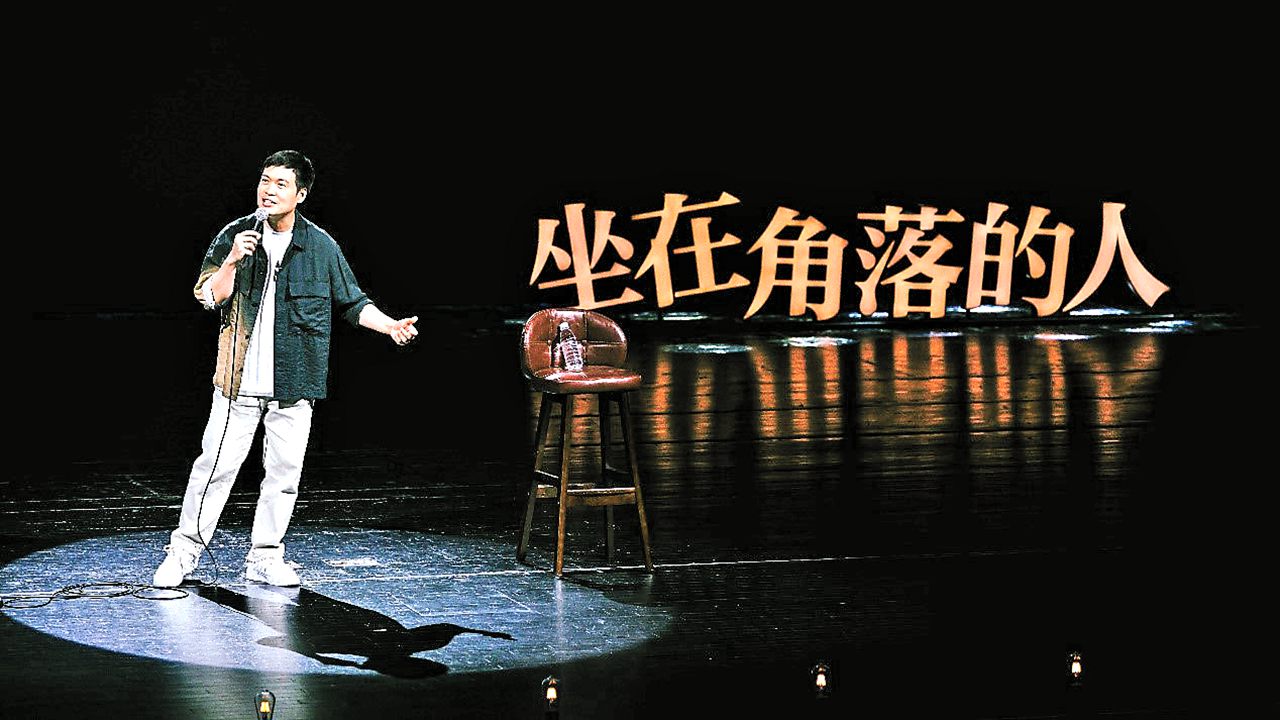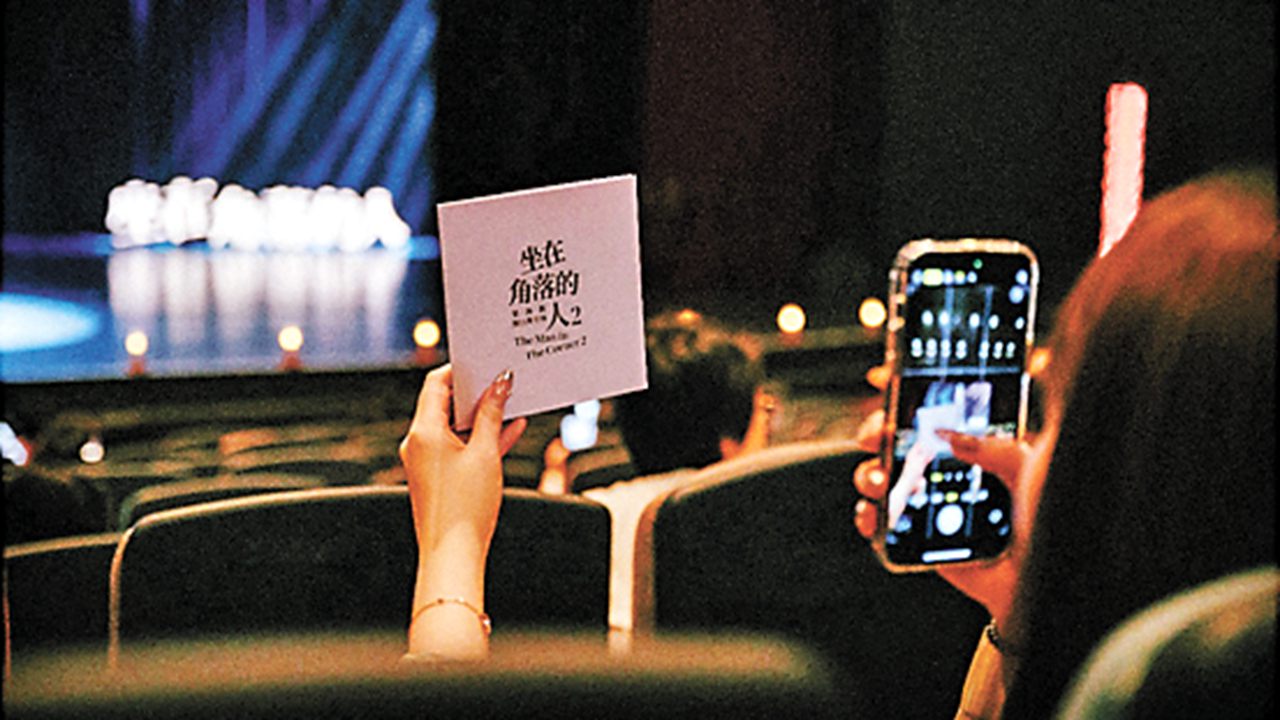From corner to world Comedian kicks off tour in Shenzhen
Writer: Li Dan | Editor: Zhang Zeling | From: Original | Updated: 2024-06-11

Liang Haiyuan
Can an introvert do stand-up comedy? The answer is yes, when it comes to Liang Haiyuan. And he’s good.

Liang Haiyuan performs stand-up comedy at Huaxia Art Center on June 7. Photos courtesy of the organizer
Liang’s sold-out stand-up comedy, “The Man in the Corner 2,” was met with roof-raising cheers and applause June 7 night at Huaxia Art Center in Nanshan District.
With Shenzhen as its first stop, the Chinese-language show will tour 15 countries and regions including Singapore, Australia, New Zealand, Japan and North America. Tickets for the first three shows in Singapore have already been sold out.

An audience member takes photos of the show leaflet at Huaxia Art Center on June 7.
During the 115-minute performance, Liang shared his keen observations on life with the audience, using witty language, hilarious puns and a matter-of-fact tone. Despite his Mandarin with a tinge of the Guangxi dialect, his style could even be described as elegant. Expect no slapstick humor; he will win you over with charming Chinese language.
Winning the hearts of fans with his unique style and becoming a household name through the popular TV show “Rock and Roast,” Liang can always find an unusual perspective to shed light on life’s frustrations and get people laughing and thinking. “I laughed to tears,” said one man in the audience. “He pointed out the absurd things people tend to overlook in life. I admire the logical wit of his jokes. I like him for being a regular guy, just like me.”
Liang, an introvert, would quickly seek out a “corner” to hide himself in life and in workplace, where he sits quietly observing. “You can get dusty, loaf away time in a corner; or you can shine in a corner,” he once told his audience.
These observations led to his first solo show, “The Man in the Corner,” which, viewed by over 50,000 audiences from 30 cities, was rated 9.6 points out of 10 on Douban, China’s equivalent of Rotten Tomatoes. People resonate with him, feeling empowered by his hilarious jokes.
Last year, Liang took a gap year traveling, which partly inspired his current show and put in him the dream to reach a larger audience. “I’m confident that the overseas audience can get me, because people’s mentalities from various parts of the world, connected by the internet, are not as different as we thought,” Liang told Shenzhen Daily before the June 7 show.
“I choose Shenzhen to be the first stop of my world tour because this city and I had history,” he said. “I worked for a biotech company in Shenzhen about a decade ago, and it’s here that I gave stand-up comedy a first shot at an open mic night.”
A decade ago, stand-up comedy, imported from the West, was only performed in big cities such as Beijing, Shanghai and Shenzhen, where aficionados took it as a means of self-expression and stress relief.
One of China’s first comedians, Liang witnessed stand-up comedy evolving in China from a niche to a mainstream form of entertainment, bolstered by the success of such online shows as “Rock and Roast.”
Today, Chinese comedians like Liang have reached the global audience, as more Chinese cultural products make inroads into overseas markets. Several companies have already produced Chinese-language comedies with English subtitles for streaming sites including YouTube and TikTok.
Last January, Shanghai-based Xiaoguo Culture Media Co., Ltd. launched a successful 14-day tour in North America, making stops in cities with sizable Chinese communities, such as Seattle and New York City.
“Stand-up comedy, readily accepted by overseas audiences, is destined to become a conduit for bridging China to the world,” said Liang Jiangang, an official with Xiaoguo.
“Audiences can relate to the funny authentic experiences shared by Chinese comedians, and get a better understanding of contemporary China and its youth,” he said, adding that the shows can also foster a sense of belonging in overseas Chinese communities.
In more than one way, Liang Haiyuan’s show effectively communicates Chinese perspectives and life philosophies to Western audiences. It turns out that such an imported genre as stand-up comedy can tell the China story well.